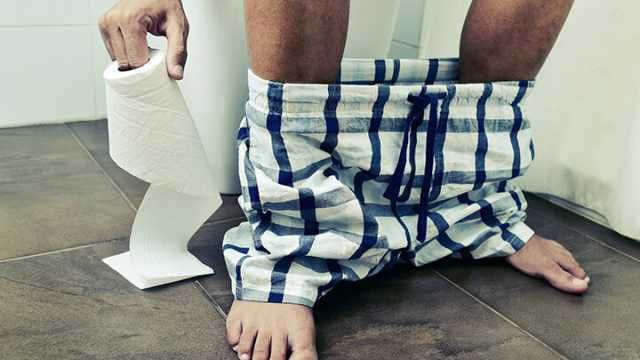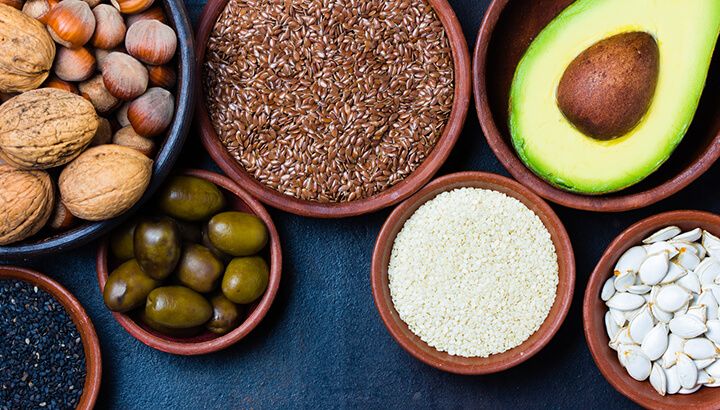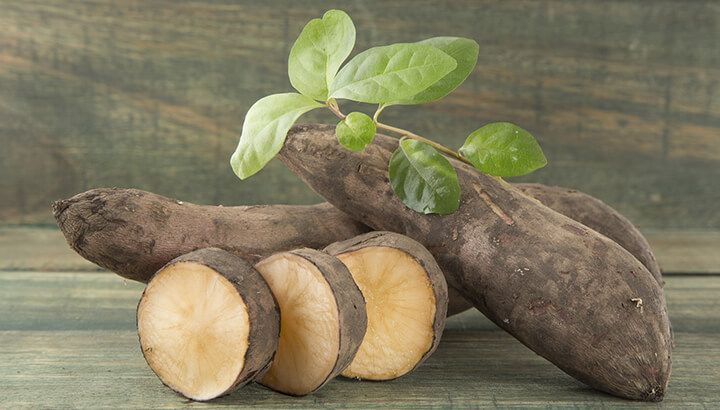
Millions of Americans suffer from constipation, an annoying and often painful condition. If you have less than three stools per week, you are constipated. If you have less than one stool a week, you are severely constipated. Perhaps it’s time you learned how to poop more often.
The cause of constipation can be traced back to any number of things including poor diet, medication, poor bowel habits, dehydration, hormonal disorders and laxative abuse. For many people, the discomfort of constipation becomes so great that they reach for over-the-counter medications for relief. Unfortunately, many of these medications only mask the symptoms and can make the problem worse.
Complications of severe constipation
The normal length of time between bowel movements can vary widely from person to person. Some people have them up to three times a day. Others may have them only once or twice a week. However, going longer than three or more days without one is simply too long. After three days, the stool or feces become hard and lumpy, making it difficult to pass. You may feel as though there’s a blockage in your rectum that prevents bowel movements, or that you can’t completely empty the stool from your rectum.
Occasional constipation rarely causes any complications or long-term health problems. Natural treatments are usually effective, especially if it’s started immediately. However, if you suffer from severe or chronic constipation, you may be at risk of experiencing the following complications.
Hemorrhoids: Nearly three out of four adults will have hemorrhoids from time to time. Continued straining due to constipation increases your chance of developing hemorrhoids.
Anal fissure: When stool is hard, a sudden tear during evacuation in mucous tissue can occur, leading to an anal fissure. An anal fissure is five times more likely to develop with chronic constipation, according to research published in the Journal of The American Board of Family Medicine (JABFM).
Organ prolapse: Chronic constipation may induce prolapse of pelvic organs. Prolapse is a condition in which the uterus, rectum, bladder, urethra, small bowel or the vagina itself may begin to fall out of their normal positions.
Fecal impaction and bowel obstruction: Chronic constipation may lead to impaction and giant feces obstructing the large bowel. The situation may necessitate surgery.
Here’s why you might not be pooping regularly
Treatment for occasional or chronic constipation depends in part on the underlying cause. In some cases, a cause is never found. Nevertheless, here are some reasons why you might not be pooping regularly.
- You frequently take antacid medicines that contain calcium or aluminum.
- You’re eating a lot of dairy products.
- You have an underactive thyroid (hypothyroidism).
- Your stress levels are through the roof.
- You take certain medications that contribute to constipation such as narcotics, antidepressants or iron pills.
- You’re experiencing irritable bowel syndrome (IBS).
- You are simply not active enough.
- You are not eating enough fiber or drinking enough water.
- You’re resisting the urge to have a bowel movement due to hemorrhoids.
- You’ve made changes to your diet or normal activities.
- You have problems with the nerves and muscles in your digestive system.
- You are pregnant.
- And, more seriously, your chronic constipation may be due to colon cancer.
Check your diet first

Before doing anything else, it is imperative to have a look at your diet. People who consume remarkably little fat in their diet tend to have a problem using the bathroom more frequently than those who get enough fat. If you’ve chosen a high-protein/low-fat diet, keep this in mind. Protein from meat, fish, chicken, dairy and seafood digests completely. It’s absorbed into the blood as amino acids. Meaning, there is no protein in normal stool, except burned meat. Whereby, almost 95 percent of all fat consumed, is absorbed into the small intestine.
Healthy fats are great additions to your diet, such as those found in olive oil, nuts, coconut oil, avocados, olives, fatty fresh-caught fish and flaxseed oil. These fats not only help keep the digestive system lubricated, but they also fight off obesity, improve cognitive function and increase energy — not to mention that they are great for brain function as well. Aim for a little fat with each meal and stay clear of the fats in processed foods — they will only exacerbate problems in the digestive system.
The role of fiber
The benefit of fiber in the diet should never be underplayed. In 430 BCE, Hippocrates described the benefits of coarse wheat compared to refined wheat as a laxative. And then in the 1920s, J.H. Kellogg published the benefits of bran, noting how it increased stool weight, promoted laxation and prevented disease.
Both insoluble and soluble fiber are necessary for healthy elimination. Insoluble fiber passes through the body virtually unchanged. It provides bulk for stools and makes them easier to pass by keeping the texture smooth. Foods that have a high amount of insoluble fiber include fruits, vegetables and whole grains.
Research by the Department of Food Science and Nutrition at University of Minnesota suggest that cereal fibers are most effective for increasing stool weight. And when it comes to eliminating bulky stool, wheat bran is considered the “gold standard,” since no other fiber or laxative has proved as effective.
A study conducted by the Colorectal Laboratory at Copenhagen University found that bulky stool in the colon increases bacterial counts, which creates chronic inflammation of the colonic mucosa and leads to a higher risk of developing cancer. A diet rich in fiber prevents colorectal diseases associated with faecal retention.
Soluble fiber is found in food such as oatmeal, legumes, fruits and green vegetables. This fiber dissolves in water and makes a gel-type substance in the intestines, which gently eliminates bulky stool. Soluble fiber also slows digestion and allows the body to absorb as many nutrients as possible from food.
Incorporate some lifestyle changes
Apart from keeping your diet in check, changing some old habits could have positive consequences on how often you poop. For instance, if you’re generally not physically active, then start exercising. Physical activity increases muscle activity in your intestines, suggests the Mayo Clinic. Add exercise to your daily routine for most of the week. If you don’t already exercise, ask your doctor about whether you are healthy enough to start an exercise program.
Additionally, don’t ignore the urge to have a bowel movement. Pooping is a way of life, so take your time in the bathroom. Allow yourself enough time to go to the bathroom without distractions or feeling rushed.
On the other hand, some people may need to poop, but not realize it. Unfortunately, a weakened anal sphincter (the muscle around the anus) or nerve problems makes it difficult to recognize that the rectum is filling. In this case, you need to train your bowels by sitting down on the toilet even if you don’t feel the urge to go. Another technique involves strengthening the anal sphincter with Kegel exercises. Like all muscles, the sphincter can be weakened. Kegel exercises involve squeezing and holding the muscles in the pelvic area, which then strengthens the muscles and helps them function better during bowel movements.
How to poop more, naturally
Once you get your diet and lifestyle under control, there are a number of safe alternative therapies you can use to keep your digestive system functioning at top speed for regular bowel movements.
Please note, it is important to discuss these options with your healthcare practitioner before starting a new regiment.
Yacón
Yacón is a perennial plant that grows in the Andes of Perú. It produces sweet and crisp tubers that taste like a cross between an apple and a watermelon. Known as the “apple from the earth,” or the Peruvian ground apple, people have found this root to be helpful with digestive disturbances including constipation.

Researchers at the University Hospital Bassel in Bassel, Switzerland took at look at just how powerful this sweet tuber really is in fighting constipation. Their research, which consisted of administering yacón syrup (20 grams daily) to male and female volunteers, demonstrated that stool frequency increased from 1.1 to 1.3 times per day with softer stools.
Some mild cramping was noted, but the overall impact of the syrup compared to the placebo group was notable. Researchers indicated that because the root is also low in calories, it may make a suitable natural laxative for obese or diabetic individuals.
Where to get it: You can purchase syrup online from a number of health outlets or in health food stores.
Calendula
Calendula (Calendula officinalis) is frequently confused with the common marigold plant seen in gardens, however, they are two different plants. This plant has been used medicinally since the 12th century and contains a strong anti-inflammatory component. When used topically, it can heal minor wounds and scrapes due to its antiviral and antibacterial qualities.
This plant is a strong antioxidant and has spasmogenic and spasmolytic constituents, which help with abdominal cramps and constipation. For relief of constipation, steep a teaspoon of dried leaves in hot water for a few minutes. This tea will ease cramping and encourage healthy digestion.
Where to get it: You can grow and dry your own calendula or you can purchase it as a tincture, tea or dried mixture from most health food stores.
Parsley
This fragrant and attractive herb is best known as a plate embellishment and for its ability to cleanse your breath. However, both parsley juice and fresh parsley have been found to be an effective remedy for constipation. For many years, the laxative effect that parsley had was known only as folk medicine, but researchers at the American University in Beirut confirmed that parsley does indeed have laxative qualities.
Where to get it: Grow parsley in a window herb garden or purchase at most grocers or whole foods stores.
Lemon water
Although there is nothing fancy about infusing half of an organic lemon in a cup of warm water, it can do great things for a sluggish digestive system. It increases alkalinity (yes, lemon actually makes your body less acidic) and helps rid the body of toxins while promoting healthy digestion.
Lemon water also boosts the immune system, hydrates the lymph system and acts as a natural diuretic. Get into the habit of having a cup or two of warm lemon water each morning and your body will thank you.
Where to get it: From the grocery store. Use organic lemons and filtered water for best results.
Ziziphus jujuba
This fast-growing deciduous tree is also called red date (or Indian date) and bears fruit that is widely used in Chinese medicine for insomnia and anxiety. It also has strong antioxidant and antimicrobial properties. Clinical trials found that the fruit extract is also useful in treating chronic constipation.
Researchers gave constipated study participants ziziphus jujuba extract for 12 weeks. They found that symptom severity ratings decreased and quality of life increased when compared to the control group.
Where to get it: Powdered extract is available from many online dealers or from health food stores.
Coconut oil
Known endearingly as the “go-to oil” for any number of health conditions, organic virgin coconut oil can also help ease a bout of constipation. Coconut oil, which is great for everything from hair conditioner to toothpaste, can be mixed with coffee, used on salads or even consumed straight from the jar.
This tropical treasure will not only speed up metabolism, allowing for a quicker breakdown of food, but also cleanse the colon. It balances stomach pH and improves the tone of the intestinal muscles, which promotes regular bowel movements. If you are new to coconut oil, start with one teaspoon a day and build up to two or three per day over the course of a few weeks.
Where to get it: Coconut oil is available online, in health food stores and even some high-end grocers. Be sure to get organic virgin coconut oil for best results.
Teas that make you poop
Regularly consuming water is one of the best ways to prevent constipation, and a great way to stay hydrated is by drinking tea. Herbal teas are soothing and relaxing, and some may even help keep you regular. Here’s a look at which teas can help with constipation.
Cascara tea
Cascara sagrada, an herbal tea that helps you poop, is actually the dried tree bark from the California buckthorn tree. It works by creating muscle contractions in the intestines. These contractions help move stool through the bowels. In addition, the bark contains chemicals called anthraquinone glycosides, which provide a laxative effect. These chemicals also react with bacteria in the intestines, stimulating the bowels.
This tea can be very potent and should only be used for short-term constipation relief. Research published in the University of Rochester Health encyclopedia suggests not drinking cascara tea if you have chronic intestinal problems such as Crohn’s disease, ulcerative colitis, sprue or irritable bowel syndrome.
Senna tea
Derived from the leaves of the senna plant, senna is a natural medicine that contains sennosides. Sennosides irritate the lining of the bowel, which cause a laxative effect. Research published in JABFM compared the effects of senna with another laxative in treating chronic constipation. Senna proved to be a better choice. However, like cascara tea, senna tea can be very potent and should only be used for short-term constipation relief. Side effects could include stomach cramping and diarrhea.
Dandelion tea
Better known as a yard weed, the common dandelion has laxative qualities that may help with constipation. A tea made from dandelion root can stimulate natural bile production from the liver, creating a mild laxative effect.

Peppermint tea
Peppermint tea is thought to help improve digestive function and help ward off constipation. This soothing tea helps food pass through the stomach more quickly. In addition, peppermint tea relaxes the muscles that allow painful digestive gas to pass.
Tulsi tea
Apart from being an effective tea for constipation and overall digestive health, tulsi is also thought to contribute to a number or health benefits, including stamina and the immune system.
Fennel seed tea
Fennel tea provides relief from constipation. It’s also good for digestive health and abdominal discomfort such as gas and stomach bloating.
Clove tea
This pungent spice provides constipation relief and will calm and soothe the digestive tract. Add crushed cloves to boiling water for two minutes. Remove from heat and allow to steep. Strain into a cup and enjoy.
How to poop more with a stool
For some, sitting upright on the toilet may cause constipation, simply because of the recto-anal angle and its relationship with the sitting posture. Everyone has a kink at the end of the rectum, a 90-degree angle that stops you from pooping yourself whenever you have the urge to go. But, the angle only slightly straightens when you sit on the toilet. That leaves some people straining to eliminate their bowels. Adding a toilet stool to your bathroom routine creates a better posture for eliminating and may prevent constipation.
With a potty stool, the weight of the torso presses against the thighs and naturally compresses the colon. Therefore, gentle pressure from the diaphragm supplements the force of gravity. The puborectalis muscle relaxes, allowing the anorectal angle to straighten and the bowel to empty completely.
No one needs to suffer through constipation. Healthy bowel movements can happen naturally by supporting colon and digestive health safely. By changing your diet, searching for alternative therapies and making some lifestyle changes, you will not only poop more often, but also:
- Lower your risk of developing colorectal cancer.
- Lower your risk of experiencing chronic constipation and irritable bowel syndrome.
- Become better at absorbing minerals.
- Feel lighter, more comfortable and less bloated.
- Lower your risk of developing hemorrhoids.
- Lower gas production.
— Katherine Marko

